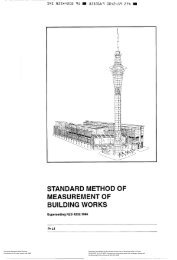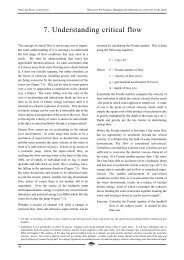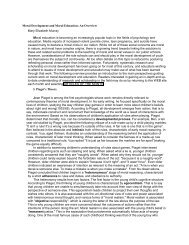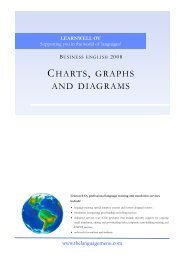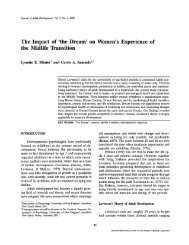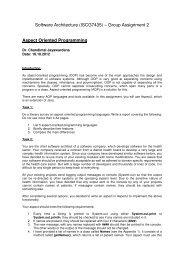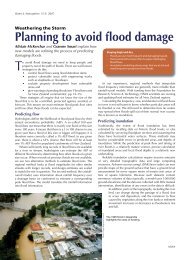WHAT POSTFORMAL THOUGHT IS, AND WHY IT MATTERS
WHAT POSTFORMAL THOUGHT IS, AND WHY IT MATTERS
WHAT POSTFORMAL THOUGHT IS, AND WHY IT MATTERS
Create successful ePaper yourself
Turn your PDF publications into a flip-book with our unique Google optimized e-Paper software.
<strong>WHAT</strong> <strong>POSTFORMAL</strong> <strong>THOUGHT</strong> <strong>IS</strong> <strong>AND</strong> <strong>WHY</strong> <strong>IT</strong> <strong>MATTERS</strong> 327<br />
This stage has not been examined in much detail because there are very few<br />
people who can solve tasks of this complexity. It may also take a certain amount of<br />
time and perspective to realize that behavior or findings were cross-paradigmatic.<br />
All that can be done at this time is to identify and analyze historical examples.<br />
Such examples are included in “The Connection Between Postformal Thought<br />
and Major Scientific Innovations,” this issue.<br />
IMPLICATIONS OF <strong>POSTFORMAL</strong> <strong>THOUGHT</strong><br />
There are a number of reasons to recognize the importance of postformal thought<br />
and its implications for the world we live in. A nonexhaustive selection of reasons<br />
is given here, some general, some more specific. A first example is drawn from<br />
the social work pendulum system constructed by the person (above) who reflected<br />
on two conflicting results of empirical studies at Formal stage 10. Since Formal<br />
stage 10 operates on just one input variable, conclusions have a limited scope<br />
that are almost always in conflict with another study or studies that used different<br />
input variables or were multivariate in design. The Systematic stage 11 of postformal<br />
thought contributes multivariate analyses to knowledge-building, which may<br />
bridge apparent conflicts generated by Formal stage 10. Multivariate analyses can<br />
indicate multiple correlations without providing deeper analyses of the causative<br />
systems of relations, which becomes possible at Metasystematic stage 12. The advancement<br />
of science depends on at least Metasystematic Stage actions. Analyzing<br />
complex dynamics of such things as terrorism, corruption, poverty, and countless<br />
other modern challenges requires at least Metasystematic stage 12 reasoning. It<br />
may require reasoning at Paradigmatic stage 13 to employ such understanding and<br />
conceive how multiple metasystems must change to alleviate conditions that give<br />
rise to such challenges.<br />
Postformal thought introduces interpersonal and societal benefits unavailable<br />
at formal and earlier stages of performance. One prominent difference observable<br />
from the Metasystematic stage forward is the reduction in framing problems in<br />
terms of “us versus them.” Because multiple systems of causation are recognized,<br />
there is no single set of “bad guys” to blame for problems. The battle-metaphor<br />
language prevalent in much of society is largely abandoned at the Metasystematic<br />
stage (e.g., “war on terrorism,” “fight climate change,” “overcome poverty”).<br />
Awareness of each person as a system with a perspective, and even with multiple<br />
perspectives, leads to interpersonal and social preferences for genuine interest and<br />
inquiry in others’ points of view. People are treated as subjects or sovereigns of their<br />
own experience, rather than the objects of others’ strategic plans. This shows up<br />
in organizational and public changes in how leadership is understood and enacted<br />
and how constituencies are engaged. 2 For example, dialogical means are used<br />
in order to conduct real discussion in the process of making policy (Sonnert and<br />
Commons, 1994). Developmentally structured discourse, analysis, and decisionmaking<br />
process for addressing complex issues and policy development at systemic<br />
levels become possible for wide replication (see “Evolving to Address Global<br />
Climate Change,” this issue; Ross, 2006).




